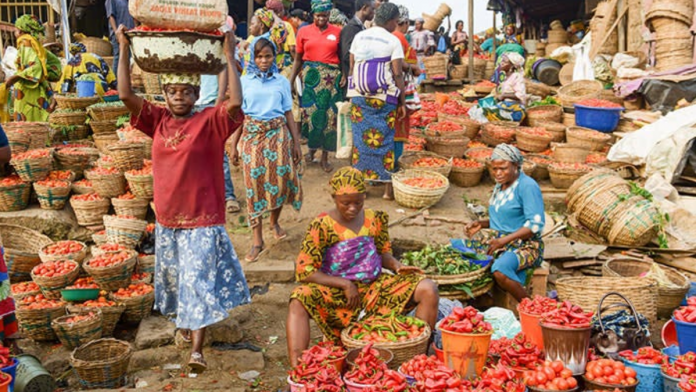News in brief:
– Rising food prices in Nigeria, fueled by declining food production and increased input costs, are intensifying its food insecurity crisis.
– Staples like rice, maize, and oil saw over 50% price surges in 2023 and FAO reports that food-insecure Nigerians grew by 133% between 2016 and 2020.
Alarming spikes in food prices across Nigeria are exacerbating the country’s food insecurity crisis, pushing millions toward hunger and starvation.
The country’s food production has been declining steadily for years, creating shortages and driving up prices of essential commodities like rice, maize, and oil. According to numbers by the National Bureau of Statistics (NBS), price of some food items have surged by over 50% in the past year alone.
Between January and October 2023, the average price of local rice soared by 59.2%, imported rice by 36.6%, vegetable oil by 25.9%, and palm oil by 26.7%. Staples like garri, bread, and eggs also experienced significant price increases in the same period.
Managing partner at Prasino Farms, Abiodun Olorundero, decried the situation in a statement to a local news outlet. He disclosed that Nigerians purchasing power isn’t going up, which means they are gravitating towards hunger and starvation as most of them cannot afford to feed properly.
He further explained that declining crop production is one reason why prices are rising and food insecurity is worsening.
Meantime, relevant data paints a grimmer picture. A publication by the Food and Agriculture Organization (FAO) reports a staggering 133% increase in the number of food-insecure Nigerians in just three years, jumping from 63.8 million in 2014-2016 to a staggering 148.7 million in 2020-2022.
Additionally, Jude Obi, president of the Association of Organic Agriculture Practitioners of Nigeria, predicts production levels will continue to decline due to inflationary pressures and rising production costs. This aligns with projections from AFEX, Africa’s commodities market, which expects prices of staple foods like rice, maize, and sorghum to increase further due to decreased production.
Experts, like Olorundero, have attributed the price surge to rising input costs, particularly fuel and logistics.
Overall, food inflation has reached record levels, hitting 32.84% in November 2023, compared to 24.32% in January. This economic pressure, coupled with the depreciation of the naira and subsidy removal policies, leaves many households struggling to afford basic necessities. As revealed by the Central Bank, 75.4% of consumer credit in August 2023 was personal loans, highlighting the reliance on debt to cope with economic hardship.



